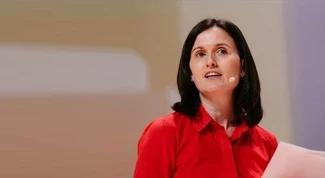Having cracked the code for corporate transformation, Yuval Dvir is widely regarded to be an authority on change management and innovation. We had the pleasure of sitting down with Yuval to discuss his journey to prominence, including how he turned Skype’s workplace culture around after three failed attempts from previous professionals.
Interviewed by our Director, Jack Hayes, we instantly resonated with Yuval’s infectious passion for business, in particular, his innate ability to see the potential for innovation in a brand. Learn first hand the power of transformation, in our exclusive interview below.
Who is Yuval Dvir?
From Skype to Microsoft, and his current role as Head of Scaled Partnerships at Google Cloud, Yuval Dvir has been called upon by several top international businesses to apply his knowledge of transformation.
Driven by his unrivalled corporate strategies, he successfully transformed arguably one of the most stubborn brands on the market – Skype. Over three years, Yuval achieved what others before him had failed to do, streamline the company’s operations and implement a sustainable, profitable business strategy.
Q: Why do some business leaders resist digital transformation?
“Well, some business leaders are genuinely concerned about technology, either because, in their experience, they haven't really dealt with it. They're not as proficient with it as some people. And some of them are just concerned about what technology would bring, because transformation may be triggered by technology, but it means much more in terms of what it brings to the company.”
“Some people, as a result, would prefer to stop any change from happening whatsoever, and ensure that their own domain and function continues as the way it is - with no transparency, with no change to their business. So, those are the problematic people that have the resistance. The others, the ones that are not as proficient, if they have the ability or the desire or the motivation to learn, they usually eventually see the benefit, the value to them.”
“And if the transformation done, is done well - then they get on board.”
“With regards to strategy and business, I think the key thing about strategy is its execution. And that's particularly true with technologies, [it] is changing so frequently and new companies are coming up, [yet] companies don't maintain themselves for too long. If we look at sort of Fortune 500, for example, so the [amount of] companies that are sustained for a long period of time is going down, new companies are coming up, and that requires the execution to be much leaner, and much more agile than ever before.”
Q: What metrics do you use to define the success of digital transformation?
“There are two types of metrics that you need to look [at]; the metrics for the transformation itself and the metrics for the business, they are tied. What I mean by that is the metrics for the transformation depends really on the type of transformation.”
“Are we doing a certain sort of initiative or a new product, or is it the true corporate-wide transformation which has not only the technological aspect or the business aspects, [but] the people aspects and very much cultural aspects. And if we were thinking about the transformation metrics, [it] is how many engaged employees do we have, [are] we able to reduce the complexity of the organization using any sort of metrics - from the number of products to the time it takes to launch an event or a product, and so on.”
Q: How did you transform Skype?
“When I was promoted at Skype to lead the Business Transformation over there, I had multiple people across the organization telling me this is the third attempt [of] trying to change the company culture, and the business is going to fail again. And, after a few weeks, I understood what they meant. Nobody really had any sort of appetite to change, and we were very close to failing once again.”
“The difference sometimes between failed transformations, and the one that succeeds is the conviction that you have [from] the leadership team and the people who move and adopt the transformation. And that's a key thing.”
Q: What are the top innovations happening today?
“We're living in fascinating times, and I think the fascination comes from the fact that the cognitive sciences, which used to have their own path - so if you studied computer science, then you would study computer science, irrespective of biology, for example, or neuroscience. What we've seen over the past few years is actually those cognitive sciences coming together, and there are much more overlaps between them.”
“So, the exciting thing is infotech and biotech coming together. And that's where I see a lot of innovation coming over the next decade.”
Q: What is it that you like about data?
“What I like about data so much is the fact that in some cases, when it's measured correctly when you're being very thorough [with] the data, then sometimes… it's a slam dunk.”
“You can't argue against it. It closes a situation or debate. It provides factual evidence and makes decisions as a result much faster. I think what we're starting to learn more and more right now is things that we've considered not scientific enough, such as gut feeling and intuition, are becoming actually more scientific than we initially thought they [were].”
“So, to give you an example, we believe that our conscious mind is what makes us make decisions, and decide where we want to go. But, it's actually the main part of our brain that we don't have even access to, the subconscious mind, where all the decisions, all the calculations are actually being made because there are some things that we are not aware of and are due to our computing power in the brain.”
“Perhaps, that shines a light on something that currently our conscious mind cannot even see.”
Book Yuval Dvir
To book Yuval Dvir for your upcoming event or webinar, contact a Champions Speakers booking agent on 02071010553 or fill in our online form to book today.









